
Hohenzollern Castle: A Majestic Fortress in the Sky
Perched atop Mount Hohenzollern, Hohenzollern Castle offers a spectacular view of the Swabian Alps in Germany. This neo-Gothic fortress, with its stunning architecture and rich history, is a must-visit for history buffs and architecture enthusiasts alike. The castle, which dates back to the 11th century, has been home to the Hohenzollern family for centuries. It has seen many reconstructions, with the current structure being completed in the 19th century. Visitors can explore the grand rooms, filled with historical artifacts, including the Crown of Wilhelm II. The castle's chapels, towers, and ramparts offer a glimpse into medieval life and the grandeur of past eras. Beyond its historical significance, Hohenzollern Castle is surrounded by beautiful landscapes, making it a perfect spot for nature lovers. The castle grounds are ideal for leisurely walks, and the panoramic views from the top are simply breathtaking. Whether you're exploring its rich history or simply soaking in the scenic beauty, Hohenzollern Castle promises an unforgettable experience.
Local tips in Hohenzollern Castle
- Visit during the spring or autumn for the best weather and fewer crowds.
- Wear comfortable shoes as the walk up to the castle can be steep and uneven.
- Consider taking a guided tour to learn more about the castle’s fascinating history and hidden treasures.
- Check the castle’s event calendar, as it often hosts special exhibitions and medieval festivals.
- Bring a camera to capture the stunning views from the castle’s towers.
Hohenzollern Castle: A Majestic Fortress in the Sky
Perched atop Mount Hohenzollern, Hohenzollern Castle offers a spectacular view of the Swabian Alps in Germany. This neo-Gothic fortress, with its stunning architecture and rich history, is a must-visit for history buffs and architecture enthusiasts alike. The castle, which dates back to the 11th century, has been home to the Hohenzollern family for centuries. It has seen many reconstructions, with the current structure being completed in the 19th century. Visitors can explore the grand rooms, filled with historical artifacts, including the Crown of Wilhelm II. The castle's chapels, towers, and ramparts offer a glimpse into medieval life and the grandeur of past eras. Beyond its historical significance, Hohenzollern Castle is surrounded by beautiful landscapes, making it a perfect spot for nature lovers. The castle grounds are ideal for leisurely walks, and the panoramic views from the top are simply breathtaking. Whether you're exploring its rich history or simply soaking in the scenic beauty, Hohenzollern Castle promises an unforgettable experience.
When is the best time to go to Hohenzollern Castle?
Iconic landmarks you can’t miss
Hohenzollern Bridge
Walk across Cologne's iconic Hohenzollern Bridge, a symbol of love adorned with thousands of locks, offering stunning views of the Rhine and the Cologne Cathedral.
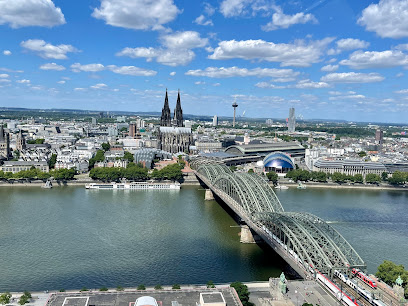
Zollerhalde
Discover Zollerhalde in Bisingen: A historical gem offering stunning views and rich cultural heritage, where nature and history intertwine for an unforgettable experience.
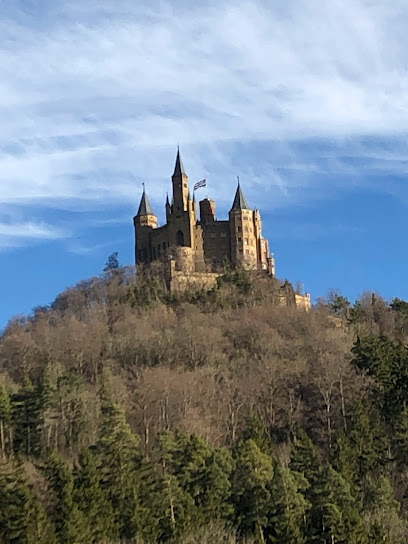
Zellerhornwiese
Discover Zellerhornwiese in Albstadt: Breathtaking panoramic views of Hohenzollern Castle and the Swabian Alb await in this serene natural haven, perfect for hikers and photographers.
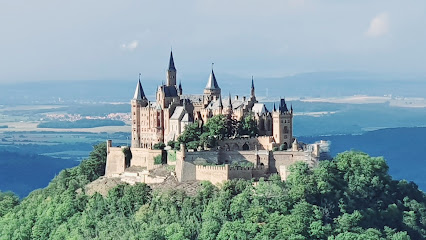
Hohenzollerisches Landesmuseum
Explore 100,000 years of Hohenzollern history at the Landesmuseum in Hechingen's Old Castle: artifacts, art, and stories from Stone Age to Prussian Royalty await.
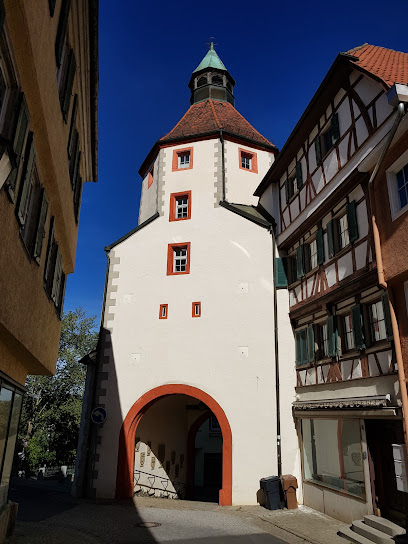
Feldkreuz Zollernhalde
Discover the serene beauty and historical significance of Feldkreuz Zollernhalde in Bisingen, offering stunning views and a peaceful escape in the heart of the Zollernalb region.
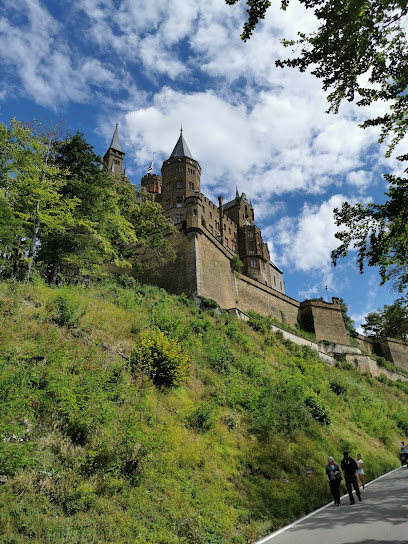
Has ohne Wedel
Discover natural tranquility at Has ohne Wedel, a hidden gem in Hechingen, perfect for nature lovers and peace seekers.
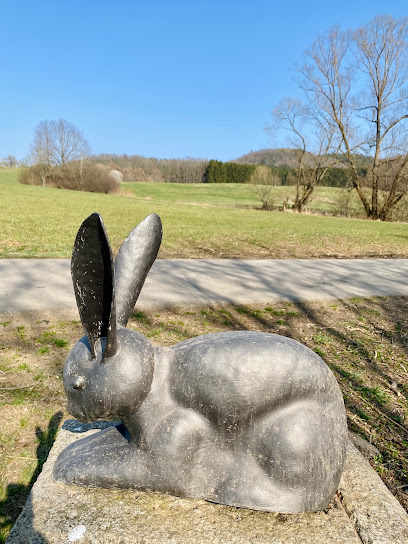
Grenzstein Hase
Experience the beauty and history of Grenzstein Hase, a stunning landmark in Hechingen, offering scenic views and rich cultural heritage.
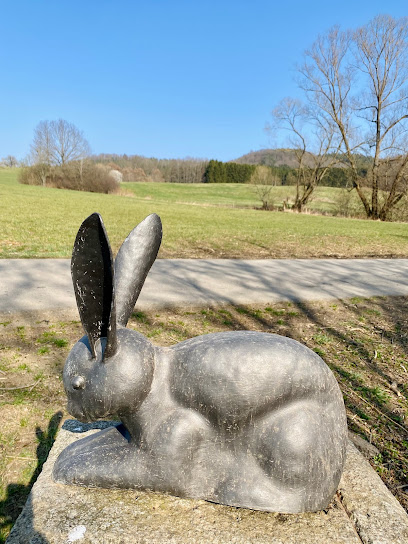
Marien Brunnen
Discover the tranquil beauty of Marien Brunnen in Hechingen, a serene oasis offering a glimpse into the town's rich history and cultural heritage, perfect for relaxation and reflection.
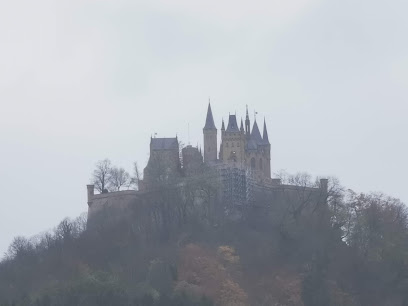
Denkmal des Fürsten Karl Anton von Hohenzollern
A tribute to Prince Karl Anton von Hohenzollern, the monument stands as a reminder of the region's history and the influence of the Hohenzollern dynasty in Sigmaringen.
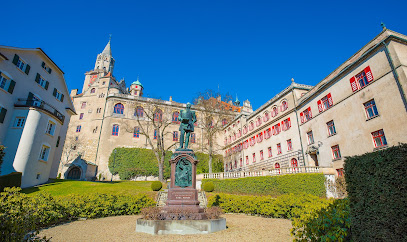
Unmissable attractions to see
Alter Botanischer Garten Tübingen
Explore the Alter Botanischer Garten Tübingen, a botanical garden filled with diverse plants and serene landscapes, perfect for nature lovers and tranquil strolls.
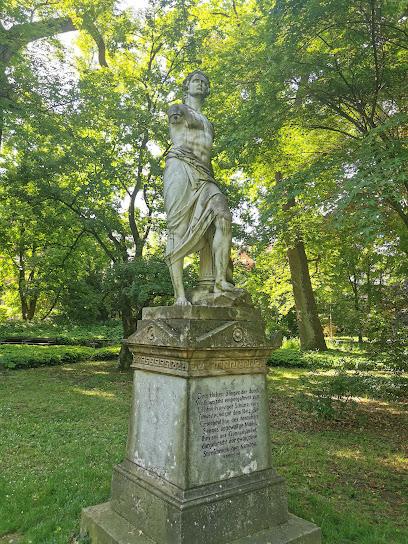
Zellerhorn Gipfel
Discover breathtaking vistas and serene hiking at Zellerhorn Gipfel, the premier observation deck in Albstadt, Germany, where nature's beauty unfolds.
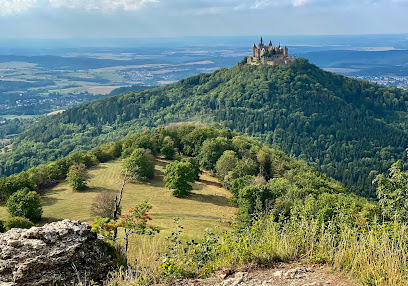
Aussichtspunkt Hohenzollernblick
Experience stunning panoramic views and hiking trails at Hohenzollernblick, a scenic spot in the heart of Swabian Alps near Hechingen.
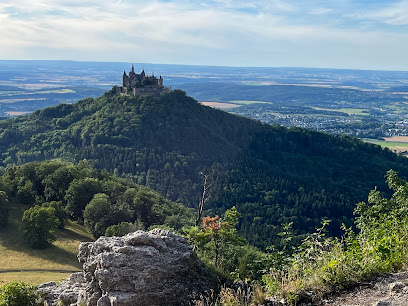
Zillhauser Wasserfall
Experience the breathtaking beauty of Zillhauser Wasserfall, a serene waterfall and hiking area in the heart of Büttenbach, Germany.
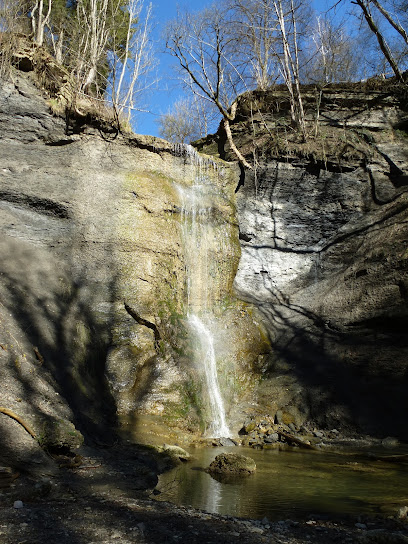
Zollerhalde
Experience the historical allure and stunning vistas at Zollerhalde, a must-visit tourist attraction in Bisingen, Germany.
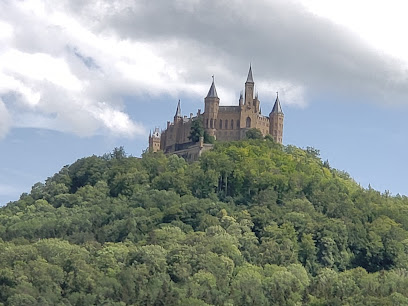
Hangender Stein
Explore the breathtaking views and scenic hiking trails at Hangender Stein, a natural wonder in Albstadt, perfect for nature lovers and adventurers.
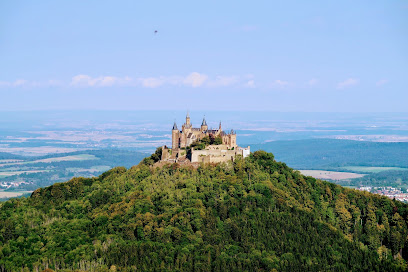
Märchenpfad Hechingen
Explore Märchenpfad Hechingen, a fairy tale hiking adventure in Germany that intertwines nature's beauty with enchanting storytelling for all ages.
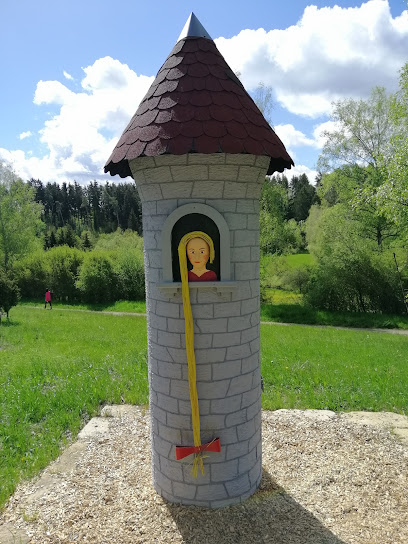
Zollernschloss Balingen
Explore Zollernschloss Balingen, a captivating castle and technology museum, blending history and innovation in the heart of Germany.
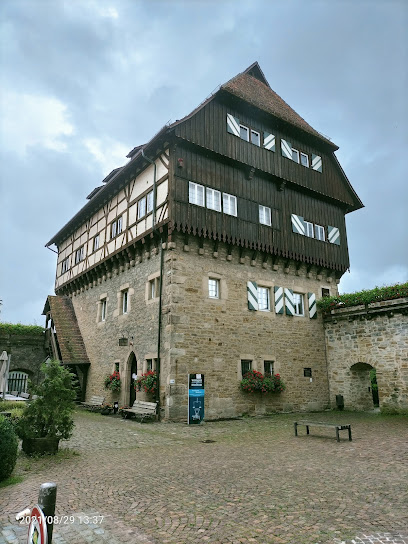
Schlossfelsenturm
Experience stunning panoramic views and rich history at Schlossfelsenturm, Albstadt's iconic observation deck.
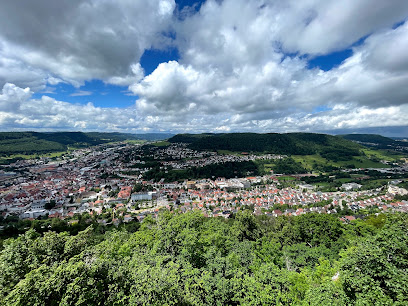
Bergrutsch am Hirschkopf
Experience the thrill of tobogganing at Bergrutsch am Hirschkopf, a stunning nature preserve in Mössingen, Germany, perfect for family adventures and scenic exploration.
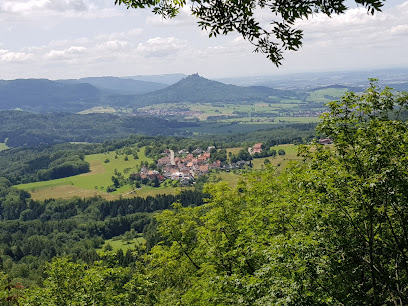
Ruine Hohenmelchingen
Explore the enchanting Ruine Hohenmelchingen, a historical landmark offering breathtaking views and a glimpse into Germany's medieval past.
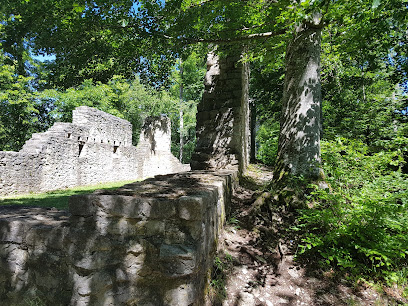
Oldtimermuseum Zollernalb
Explore the fascinating world of vintage automobiles at the Oldtimermuseum Zollernalb in Hechingen, Germany – a must-visit for car enthusiasts and history lovers alike.
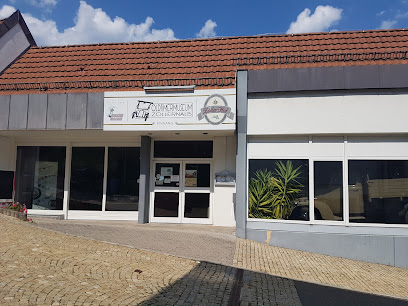
Sieben-Täler-Höhle
Uncover the beauty of Sieben-Täler-Höhle, a stunning limestone cave near Rottenburg am Neckar, perfect for adventure and exploration.
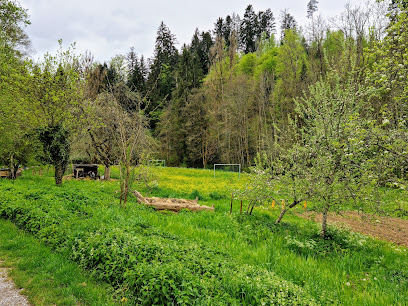
Schlichemquelle
Explore Schlichemquelle, a serene natural spring in Meßstetten, where crystal-clear waters and picturesque trails await nature lovers.
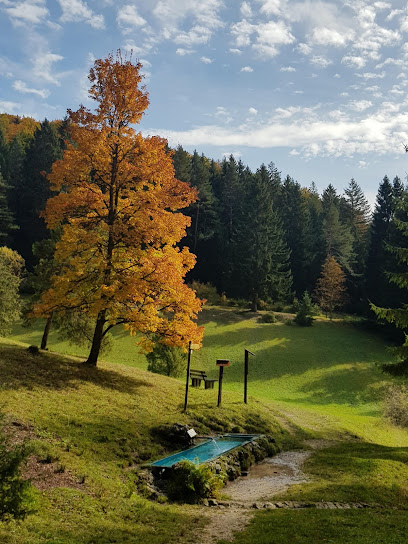
Fürstengarten
Experience the serene beauty of Fürstengarten, a tranquil park in Hechingen, offering lush gardens and historical charm for every visitor.
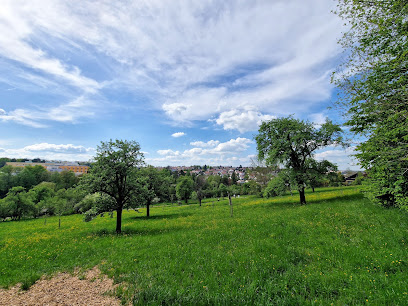
Essential places to dine
Hofgut Domäne GmbH
Discover authentic German cuisine amidst stunning landscapes at Hofgut Domäne GmbH in Hechingen.
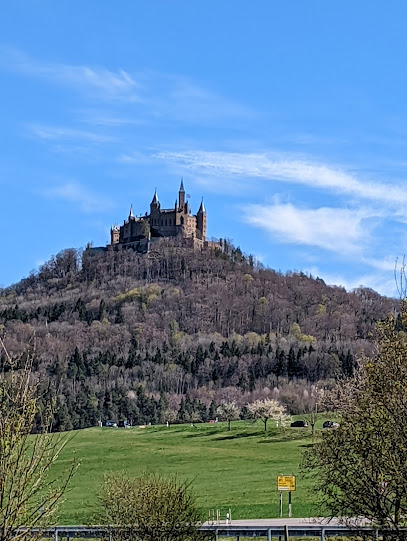
Hotel Restaurant Lamm
Discover the essence of Swabian cuisine and hospitality at Hotel Restaurant Lamm in Hechingen – where tradition meets comfort.
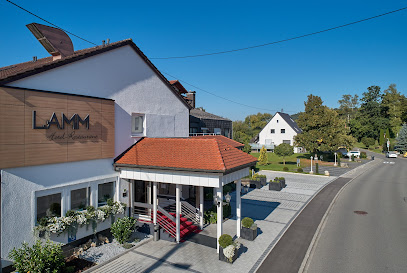
Berghotel Zollersteighof
Experience breathtaking views and delicious local cuisine at Berghotel Zollersteighof in the heart of the Swabian Alps.
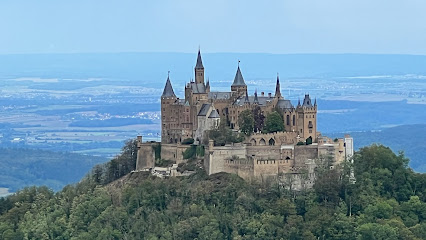
Gaststätte Kupferpfanne
Experience authentic Swabian cuisine at Gaststätte Kupferpfanne in Hechingen – where tradition meets taste.
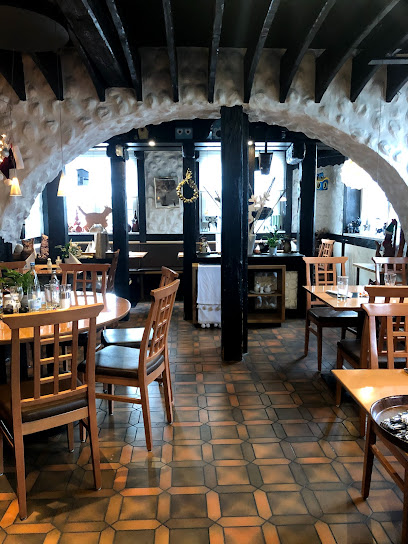
Hotel Brielhof
Experience exquisite dining at Hotel Brielhof in Hechingen – where local flavors meet elegant ambiance.
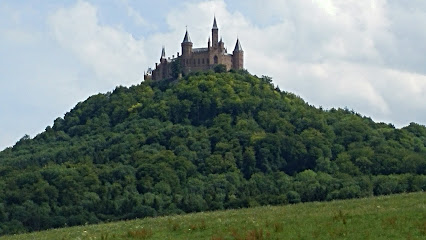
Hotel & Restaurant Hohenzollern
Discover unparalleled comfort and exquisite dining at Hotel & Restaurant Hohenzollern in Bad Neuenahr-Ahrweiler.
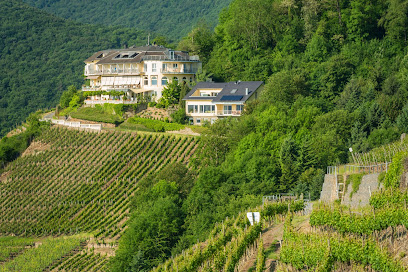
Museum Restaurant
Experience the vibrant flavors of India at Hechingen's Museum Restaurant, where culture meets cuisine in an enchanting setting.
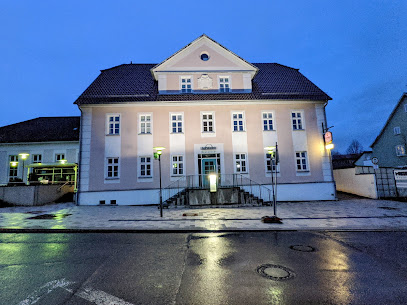
Restaurant Schloßberg Hechingen
Experience authentic Swabian cuisine at Restaurant Schloßberg in Hechingen – where tradition meets taste in every dish.
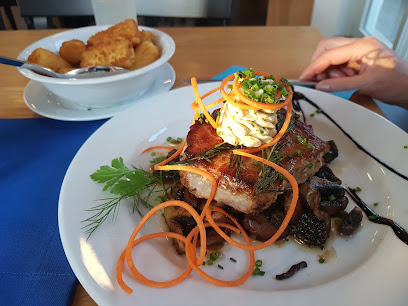
Grillplatz Burg Hohenzollern
Experience exceptional grilled delights at Grillplatz Burg Hohenzollern, where culinary tradition meets breathtaking historical scenery.
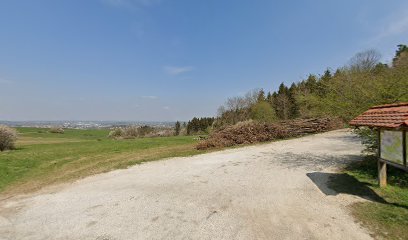
Essential bars & hidden hideouts
Hofgut Domäne GmbH
Discover the heart of German culinary traditions at Hofgut Domäne GmbH, a charming bar and restaurant in Hechingen offering authentic local flavors.
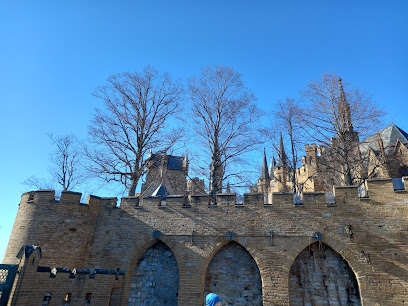
Hotel Restaurant Lamm
Discover the heart of Swabian cuisine at Hotel Restaurant Lamm, where tradition meets comfort in a delightful dining experience.
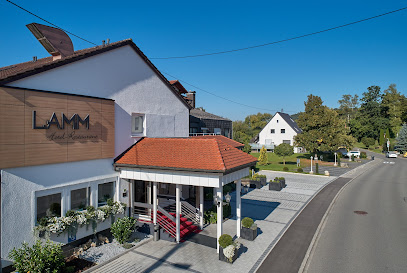
Berghotel Zollersteighof
Experience the beauty and hospitality of Berghotel Zollersteighof, a perfect blend of comfort and local cuisine in the heart of Albstadt's stunning landscapes.
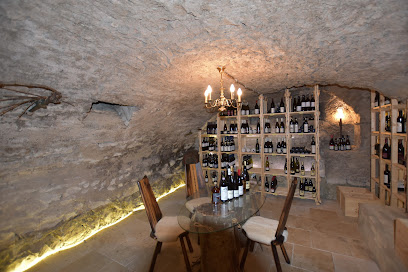
Hotel Brielhof
Discover the culinary excellence of Hotel Brielhof, where exquisite flavors meet a charming atmosphere in the heart of Hechingen.
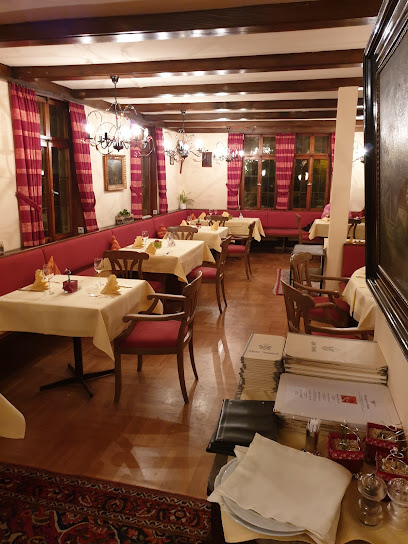
Café Bistro Schlupfwinkel
Discover the cozy charm of Café Bistro Schlupfwinkel, where delightful coffee and local flavors await in the heart of Rangendingen.
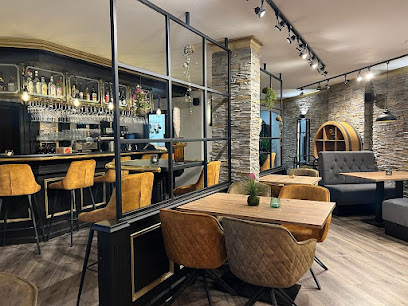
Museum Restaurant
Experience the rich flavors of India in the heart of Hechingen at the Museum Restaurant, where every dish tells a story.
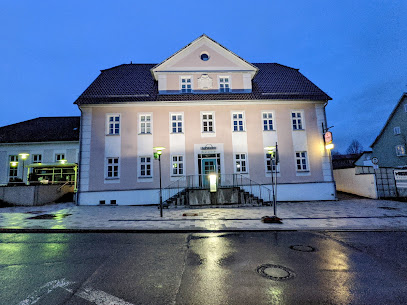
Tommy's Gastronomie
Experience authentic German cuisine in a cozy setting at Tommy's Gastronomie, a culinary treasure in the heart of Hechingen.
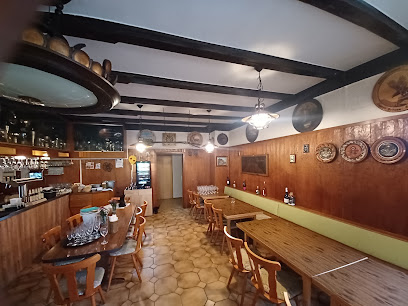
Cosita Vino y Mas
Experience the best of international wines and local delicacies at Cosita Vino y Mas, a cozy wine bar in the heart of Balingen, Germany.
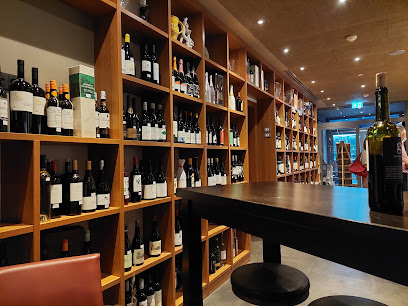
Savo Lounge-Club
Discover Savo Lounge-Club in Balingen, where vibrant nightlife meets exceptional cocktails in a stylish and inviting setting.
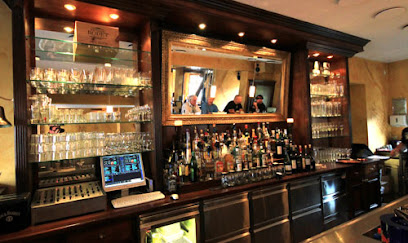
Löwen
Experience comfort and tradition at Löwen, a charming hotel in Hechingen, close to stunning landscapes and historic attractions.
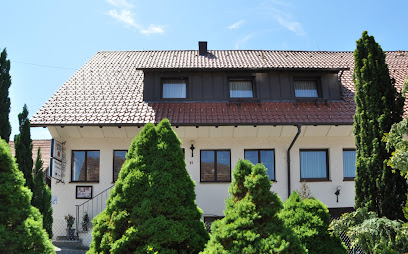
Malino
Discover Malino, Balingen's vibrant hookah bar and lounge, where relaxation meets entertainment in a stylish atmosphere.
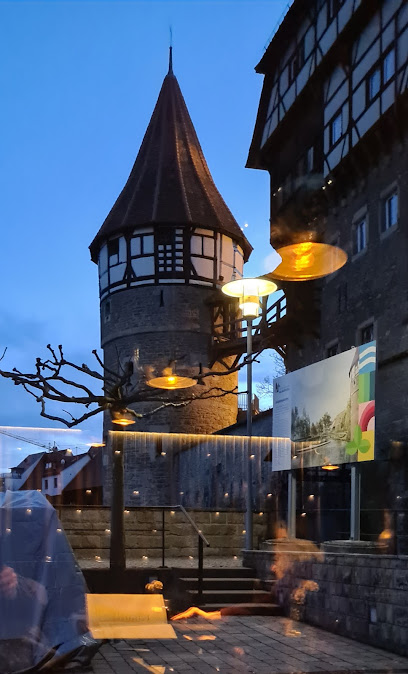
Kanzlei Hechingen
Discover Kanzlei Hechingen, a charming bar in Hechingen offering a delightful atmosphere and an impressive drink selection for every palate.
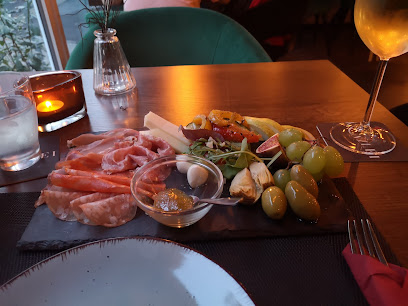
Passage
Experience the vibrant atmosphere of Passage in Balingen, where exceptional coffee and cocktails meet a lively social scene.
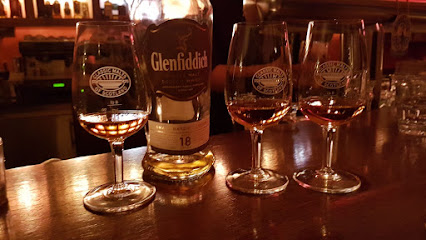
Club Kate
Discover the vibrant atmosphere and delectable local cuisine at Club Kate, Albstadt's go-to bistro and pub for a memorable dining experience.
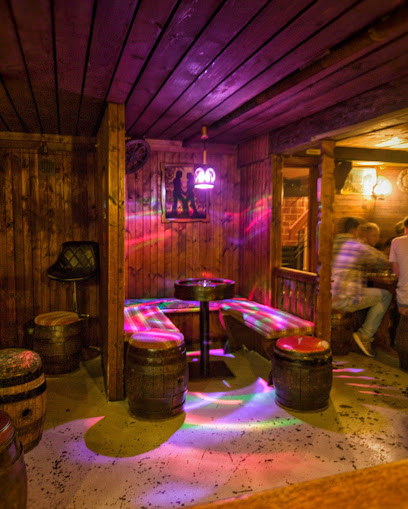
Local Phrases about Hohenzollern Castle
-
- HelloHallo
[ha-lo] - GoodbyeAuf Wiedersehen
[ouf vee-der-zay-en] - YesJa
[ya] - NoNein
[nine] - Please/You're welcomeBitte
[bit-te] - Thank youDanke
[dahn-ke] - Excuse me/SorryEntschuldigung
[ent-shool-di-gung] - How are you?Wie geht es Ihnen?
[vee geht es een-en] - Fine. And you?Gut. Und Ihnen?
[goot oont een-en] - Do you speak English?Sprechen Sie Englisch?
[shpre-ken zee eng-lish] - I don't understandIch verstehe nicht
[ikh fer-shtay-uh nikht]
- HelloHallo
-
- I'd like to see the menu, pleaseIch möchte bitte die Speisekarte sehen
[ikh merkh-tuh bit-te dee shpice-kar-tuh zay-en] - I don't eat meatIch esse kein Fleisch
[ikh ess-uh kine flysh] - Cheers!Prost!
[prohst] - I would like to pay, pleaseIch möchte bitte bezahlen
[ikh merkh-tuh bit-te betz-ah-len]
- I'd like to see the menu, pleaseIch möchte bitte die Speisekarte sehen
-
- Help!Hilfe!
[hil-feh] - Go away!Gehen Sie weg!
[ge-hen zee veg] - Call the Police!Rufen Sie die Polizei!
[roo-fen zee dee po-lee-tsay] - Call a doctor!Rufen Sie einen Arzt!
[roo-fen zee i-nen artsht] - I'm lostIch habe mich verirrt
[ikh hah-buh mikh feh-rit] - I'm illIch bin krank
[ikh bin krank]
- Help!Hilfe!
-
- I'd like to buy...Ich möchte ... kaufen
[ikh merkh-tuh ... kow-fen] - I'm just lookingIch schaue nur
[ikh shou-uh noor] - How much is it?Wie viel kostet es?
[vee feel koss-tet es] - That's too expensiveDas ist zu teuer
[dahs ist tsoo toy-er] - Can you lower the price?Können Sie den Preis senken?
[ker-nen zee den prees zeng-ken]
- I'd like to buy...Ich möchte ... kaufen
-
- What time is it?Wie spät ist es?
[vee shpet ist es] - It's one o'clockEs ist ein Uhr
[es ist ien oor] - Half past (10)Halb (zehn)
[halb (tsehn)] - MorningMorgen
[mohr-gen] - AfternoonNachmittag
[nahk-mit-tahk] - EveningAbend
[ah-bend] - YesterdayGestern
[ge-shtern] - TodayHeute
[hoi-teh] - TomorrowMorgen
[mohr-gen] - 1Eins
[ines] - 2Zwei
[tsvai] - 3Drei
[dry] - 4Vier
[feer] - 5Fünf
[fuenf] - 6Sechs
[zeks] - 7Sieben
[zee-ben] - 8Acht
[ahkt] - 9Neun
[noyn] - 10Zehn
[tshehn]
- What time is it?Wie spät ist es?
-
- Where's a/the...?Wo ist ein/der...?
[vo ist ien/dehr] - What's the address?Was ist die Adresse?
[vas ist dee ah-dreh-suh] - Can you show me (on the map)?Können Sie es mir zeigen (auf der Karte)?
[ker-nen zee es meer tsee-gen (ouf dehr kar-teh)] - When's the next (bus)?Wann kommt der nächste (Bus)?
[van komt dehr nek-stuh (boos)] - A ticket (to ....)Eine Fahrkarte (nach ....)
[i-ne fahr-kar-teh (nahkh ....)]
- Where's a/the...?Wo ist ein/der...?
History of Hohenzollern Castle
-
The history of Hohenzollern Castle dates back to the 11th century, with the first mention of the castle in 1061. It was originally built as a fortress on Mount Hohenzollern, strategically positioned for defense. The early construction was a Romanesque structure, providing both residence and protection for the noble family of the House of Hohenzollern.
-
Throughout its history, Hohenzollern Castle faced numerous conflicts and destruction. In 1423, the castle was completely destroyed during a siege by the Swabian League. The second castle, constructed in 1454, was more robust and featured Gothic architectural elements. However, it too fell into disrepair over the centuries due to warfare and neglect.
-
The current version of Hohenzollern Castle, the third incarnation, was built between 1846 and 1867. King Frederick William IV of Prussia commissioned its construction, incorporating elements of Romanticism and neo-Gothic architecture. Renowned architect Friedrich August Stüler designed the castle, which stands as a testament to 19th-century romantic ideals and the Hohenzollern legacy.
-
Hohenzollern Castle is not only a fortress but also a treasure trove of art and culture. The castle houses an impressive collection of artifacts, including the Prussian King's Crown, personal belongings of Frederick the Great, and valuable paintings. These items reflect the rich cultural heritage of the Hohenzollern family and the broader history of Germany.
-
During World War II, Hohenzollern Castle played a strategic role. It served as a refuge and storage site for art treasures to protect them from bombing raids. The castle's remote location made it an ideal place for safeguarding valuable cultural artifacts from the ravages of war.
-
In the post-war period, Hohenzollern Castle underwent extensive restoration to preserve its historical and architectural integrity. Today, it is a popular tourist destination, attracting visitors from around the world. The castle offers guided tours, showcasing its grand halls, chapels, and panoramic views of the surrounding Swabian Alps.
Hohenzollern Castle Essentials
-
Hohenzollern Castle is located in the Swabian Alps of Baden-Württemberg, Germany. The nearest major city is Stuttgart, which is approximately 50 kilometers away. From Stuttgart, you can take a train to the town of Hechingen, which is the closest train station to the castle. The journey takes about one hour. From Hechingen, shuttle buses are available to take you directly to the castle. Alternatively, you can rent a car and drive to the castle; there is ample parking available near the entrance.
-
Public transportation options to Hohenzollern Castle include trains and shuttle buses. The train service from Stuttgart to Hechingen is frequent and reliable. Once in Hechingen, shuttle buses run regularly to the castle. Taxis and rental cars are also available for more convenience, especially if you wish to explore the surrounding areas. For those who enjoy hiking, there are well-marked trails leading up to the castle from Hechingen.
-
The official currency in Germany is the Euro (EUR). Credit and debit cards are widely accepted at Hohenzollern Castle, including for entrance fees, souvenirs, and dining options. However, it is recommended to carry some cash for smaller purchases or in case card payment systems are temporarily unavailable. ATMs are available in Hechingen and at various spots within the castle grounds.
-
Hohenzollern Castle and its surrounding areas are generally safe for tourists. However, as with any popular tourist destination, it is advisable to stay vigilant and keep an eye on your belongings, especially in crowded areas. There are no specific high-crime areas targeting tourists near the castle. Basic precautions like avoiding isolated areas at night and not displaying valuables openly are recommended.
-
In case of an emergency, dial 112 for immediate assistance from police, medical services, or fire department. The nearest medical facilities are located in Hechingen. It is advisable to have travel insurance that covers medical emergencies. For minor health issues, there are pharmacies in Hechingen and at the visitor center near the castle where you can purchase basic medications.
-
Fashion: Do wear comfortable walking shoes, as the castle grounds are extensive and can be uneven. Don't wear overly casual or revealing clothing, especially if you plan to visit the chapel. Religion: Do show respect in religious areas such as the chapel by speaking quietly and dressing modestly. Public Transport: Do validate your ticket before boarding trains or buses. Don't eat or drink on public transportation. Greetings: Do greet people with a friendly 'Hallo' or 'Guten Tag'. A handshake is common in formal settings. Eating & Drinking: Do try local specialties available at the castle's restaurants. Don't refuse food or drink offerings when visiting local homes, as it is considered impolite.
-
To experience Hohenzollern Castle like a local, consider visiting during weekdays or off-peak seasons to avoid large crowds. Take a guided tour to learn in-depth historical details that you might miss otherwise. Walk the perimeter trail for panoramic views of the surrounding Swabian Alps. Visit the nearby town of Hechingen to experience local cuisine and hospitality. Engaging with the castle's staff can provide unique insights and recommendations for a more personalized experience.
Nearby Cities to Hohenzollern Castle
-
Things To Do in Freiburg
-
Things To Do in Strasbourg
-
Things To Do in Bregenz
-
Things To Do in Zurich
-
Things To Do in Dornbirn
-
Things To Do in Heidelberg
-
Things To Do in Colmar
-
Things To Do in Ruggell
-
Things To Do in Schellenberg
-
Things To Do in Gamprin
-
Things To Do in Mauren
-
Things To Do in Eschen
-
Things To Do in Basel
-
Things To Do in Schaan
-
Things To Do in Vaduz










